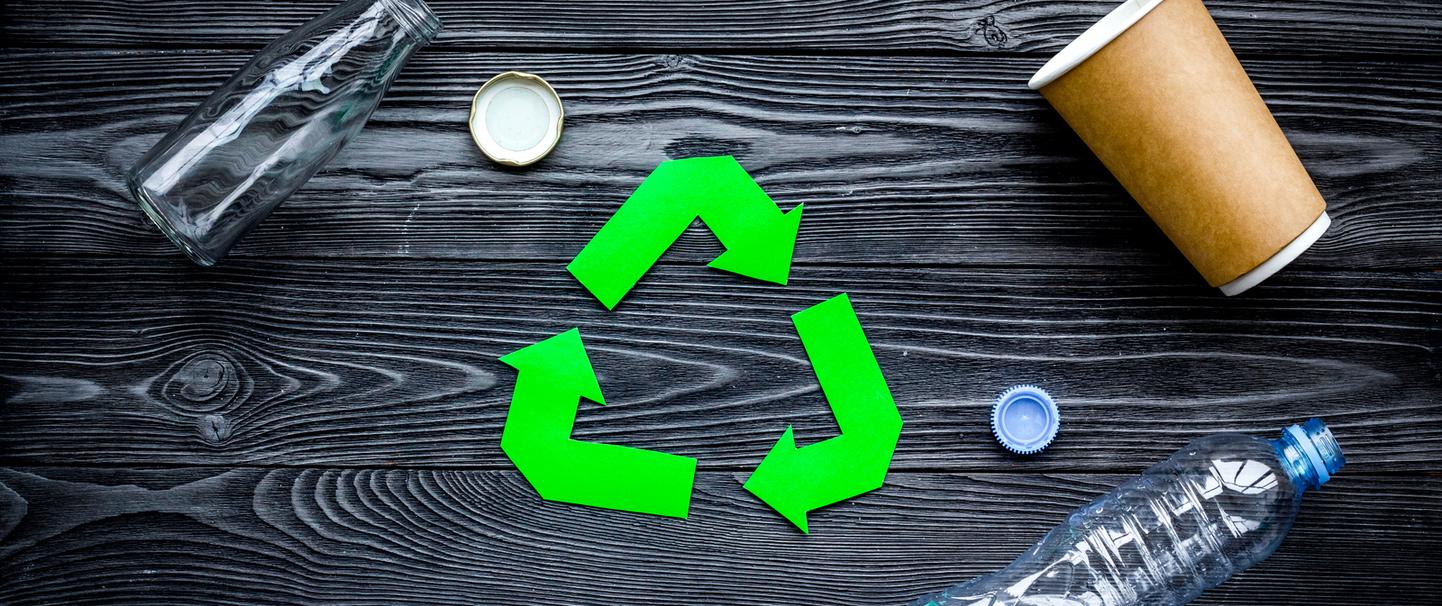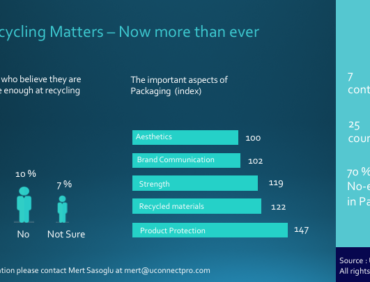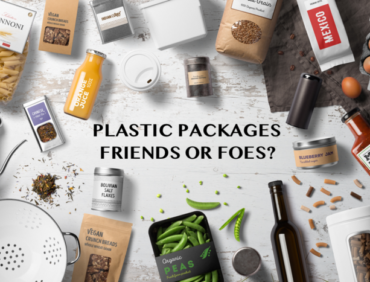If we continue our current habits, there will be more plastics in oceans than fish by weight by the year 2050. Does our planet deserve that? Do hundreds of marine species deserve to go extinct? Do our children deserve to live in such planet full of plastic waste and its harmful effects?
Currently, an average person uses almost 45kg of plastics every year which is almost double compared to the year 2000.
Almost half of this usage is in packaging plastics which has the most inefficient usage among all man-made materials, considering that the ratio of consumer usage duration to production amount is lowest. This means we use plastic packaging for a few days, but it takes somewhere between 10-1000 years for them to fully degrade, bottles specifically taking about 400-500 years. And crucial point is that, only 9% of plastics is recycled and reused.
I admit that, nowadays, we keep hearing sustainability and recycling efforts on social media, TVs, adds, boards a lot but are all those efforts enough? I do not think so.
It is true that recycling is increasing at a fast pace, but the increase of plastics production rate is much higher. In other words, the plastics that go to landfills or oceans are increasing every day. Consequently, I do not expect the amount of plastics going into planet one way or the other to drop in a foreseeable future. How can we change this trend while we still have the opportunity? I know your first answer would be recycling, but what does it truly mean?
When we hear recycled plastics, there is a huge misbelief in society that the materials can be re-used for the original purpose, for example, bottle re-used as a bottle, but it is definitely not the case. Currently almost no plastic bottle gets recycled into new bottle, since it loses its physical and aesthetic properties when recycled. Therefore, a recycled water bottle, nowadays, is being used in synthetic fabrics for clothing or making carpets, which eventually returns to our planet and, therefore the production of new plastics keeps increasing.
In short, the main goal of companies should not be only increasing the recycling rate, but instead truly focusing how to re-use this material over and over again through what we call circular economy. It will be unfair if I do not mention there are already some consumer goods companies and their partners, that dedicate themselves purely developing technologies to re-use plastics over and over again for same purpose after some processes but obviously data trend clearly suggests that those are not enough.
Apart from the focus on circular plastic, companies should put more resources on reducing package weight, innovating smart designs which use less material, educate society on recycling, invest in recycling facilities, ensure end markets for the recycled materials and many more. Another misbelief is that when companies say that they are producing 100% recyclable goods, it does not mean what consumers purchase is 100% recycled. Only around 30% of the recyclable corresponding packages are recycled from the recyclable materials. That is a watch-out too.
Efforts, though, should not be expected only from companies, but also from the consumers, in short from all of us. We should all be more determined and liable to recycle plastics, we should also re-use plastics as much as possible, i.e. by taking our own bags to the store, wherever possible. In addition, we should also be responsible enough not to put pressure on brands to use more plastics in their packaging. After working many years in major global consumer goods companies, with no hesitation could I say that packages that use more plastics are perceived to be of better quality by consumers and therefore, companies are forced to use more plastics although it is not needed from strength point of view. The pressure should be other way around against using more plastics. The list goes on and on. I will deep dive into this topic in my next articles.
Bottom-line is that a planet with its natural beauties should be our precious inheritance to the future generations, instead of a planet with full of plastics.




